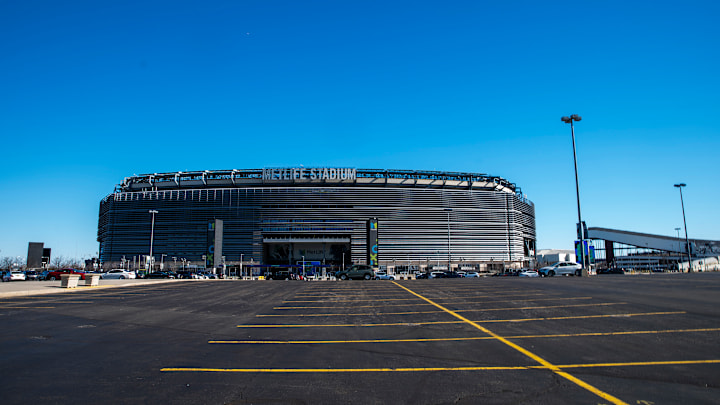The soccer world is poised to witness a historic chapter in 2026, with the FIFA World Cup scheduled to take place across three North American countries: the United States, Canada, and Mexico. The recent announcement from FIFA unveiled thrilling details, spotlighting the MetLife Stadium, located in New York/New Jersey, as the venue for the grand final on July 19.
The MetLife Stadium, renowned for its grandeur and electrifying atmosphere, promises to be the perfect setting to crown the world champion. The choice of New York/New Jersey as the host for the final adds a cosmopolitan and exciting touch to the event, reflecting the global and inclusive nature of the sport.
Follow MLS Multiplex on X (Twitter).
The competition will kick off in style on June 11 at the iconic Estadio Azteca in Mexico City. Mexico, with its rich soccer tradition, will be the starting point for a tournament that promises to unite nations through a shared passion for soccer. The opening date will mark the beginning of a month filled with emotions, intense matches, and fierce rivalries.
In addition to the MetLife Stadium, other standout venues have been announced for the decisive stages of the tournament. The Hard Rock Stadium in Miami has been chosen to host the Third-Place match on July 18, providing fans with a unique experience in one of the vibrant cities of the United States.
The semifinals will also have memorable stages. The Mercedes-Benz Stadium, home to Atlanta United in Major League Soccer (MLS), will be the setting for the second semifinal on July 15. Meanwhile, the AT&T Stadium in Arlington, Texas, known for its grandeur, will host the first semifinal on July 14. These strategic venue choices promise to offer not only high-intensity games but also unique cultural and sports experiences in each region.

The decision to spread the World Cup across three countries highlights FIFA's commitment to promoting the globalization of the sport. This innovative approach will not only provide a unique experience for fans but also reflects the inclusive and diverse nature of soccer, connecting different cultures and communities around the world.
However, we cannot overlook the logistical and organizational challenges associated with a tournament of such magnitude and complexity. Coordinating events in three distinct nations will require impeccable logistics, international cooperation, and efficient management to ensure the success of the tournament and the safety of players and fans.
Furthermore, the choice of venues raises questions about equal access to games for fans from different regions. While local fans will have the opportunity to support their teams at home, those wishing to follow their selections in different states or countries may face additional challenges, such as travel expenses and ticket availability.
The FIFA World Cup 2026 is not just a soccer tournament; it is an event that transcends borders and unites people around a shared passion. The choice of venues, with a spotlight on the MetLife Stadium, adds an extra layer of excitement and prestige to an already thrilling tournament.
The 2026 World Cup promises to be an unforgettable spectacle, celebrating diversity, competitiveness, and global unity through soccer. Fans around the world eagerly anticipate a summer filled with emotions, spectacular plays, and moments that will be etched in the history of the sport.
